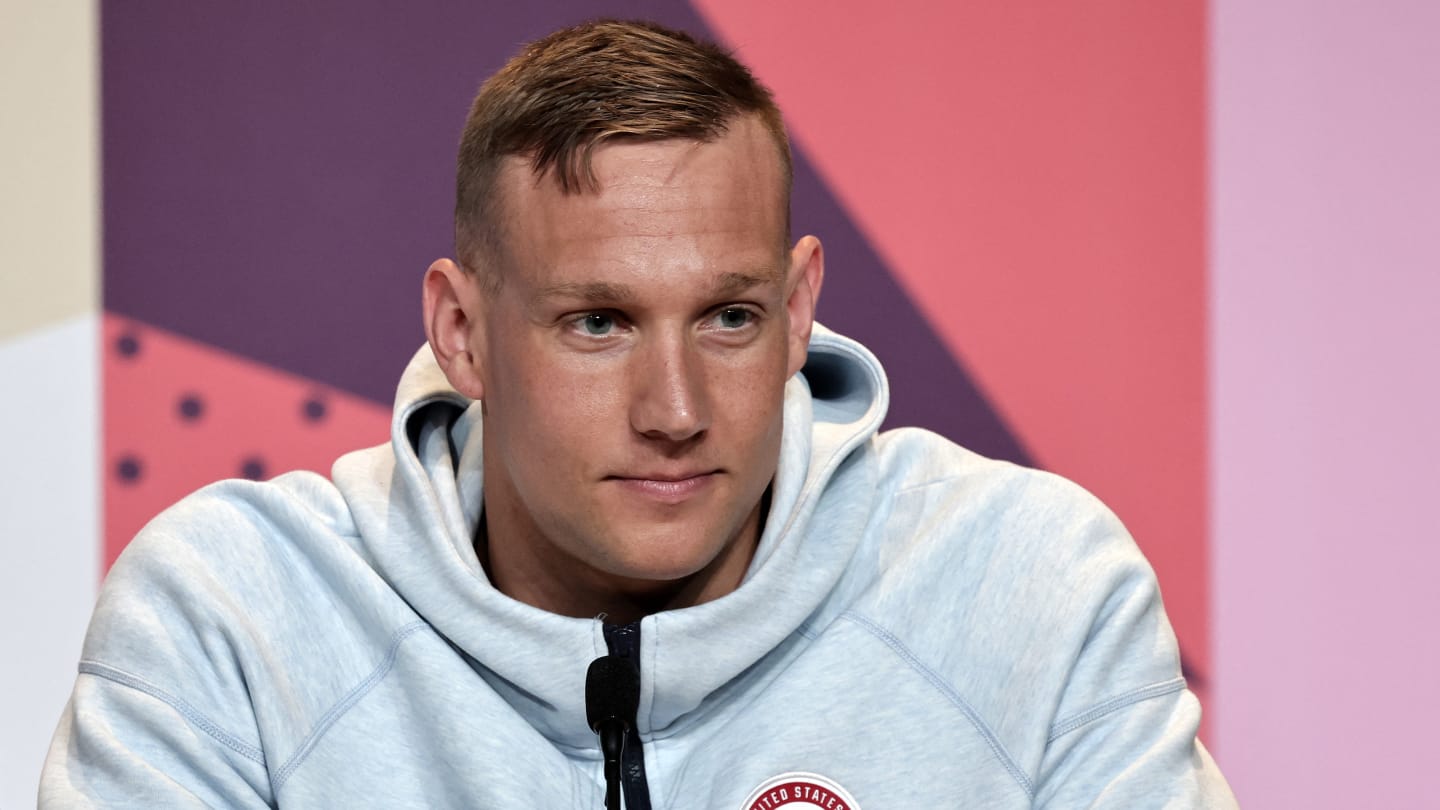World
Caeleb Dressel Sends Clear Message About World Aquatics’ Ability to Stage Drug-Free Olympics

PARIS — Caeleb Dressel was sitting at a World Aquatics press conference Thursday afternoon when he was asked the question that hovers over Olympic swimming: Does he trust World Aquatics to stage a fair, drug-free competition here?
With the president and CEO of the international governing body of the sport sitting a few chairs to his right, Dressel answered with blunt candor: “No.”
“Not really,” the seven-time gold medalist continued. “I don’t really think they’ve given us enough evidence to support them in how those cases were handled.”
Awkward.
“Those cases” refers to the much-discussed, 23 Chinese swimmers who tested positive for the prohibited substance trimetazidine (or TMZ) in 2021—positive tests that were never publicly disclosed and never led to any sanctions. Revelations about those tests exploded in April and have been a source of constant discussion and crossfire ever since. With Olympic swimming starting Saturday and China’s team still led by many of the same athletes who tested positive before the Tokyo Games, the topic is hotter than ever.
And when a seven-time Olympic gold medalist says he doesn’t trust the powers that be to produce a level playing field via drug testing, that will reverberate.
“When you have someone like Caeleb say that, obviously it’s not what you want any athlete to say,” said World Aquatics CEO Brent Nowicki, who acknowledged that the sport needs to do work to restore trust. “But we have to look forward. We have to regain his trust and regain the athletes’ trust who share that same opinion.
“I want you to ask that same question of Caeleb in L.A. [in 2028] and my goal and my hope is that his mind changes … in four years he says, ‘You know what? They did what they said they were going to do.’ ”
Most of the blowback has been directed at the World Anti-Doping Association, which declined to make public China’s positive tests or take any action against the Chinese, citing China’s assertion that the TMZ was an accidental contaminant from a hotel in which the swimmers were staying. But World Aquatics also has been implicated for standing by WADA’s findings.
In an attempt to quell the furor—much of which has originated from the United States— World Aquatics this week released statistics on 2024 drug testing for all athletes who will be competing in aquatics events in Paris.
The governing body says it conducted 2,958 tests of nearly 1,300 athletes since Jan. 1, nearly 1,000 more than in the months before the Tokyo Games and more than 300 more than the 2016 Olympics in Rio de Janeiro.
World Aquatics says that its tests of Chinese Olympic swimmers have averaged 13 per athlete, and with other testing agencies counted that number rises to an average of 21 tests since Jan. 1. American swimmers have been tested an average of six times in that span and Australians four times, World Aquatics says.
Current and former U.S. swimmers have been fiercely critical of the way the Chinese tests were handled, especially given the context of past swimming controversies involving China. It’s fair to say that confidence in WADA and World Aquatics is at or near an all-time low heading into the Olympics.
“To wonder if the competition is going to be fair when you get to Paris?” said 2016 American gold medalist Maya DiRado Andrews. “That sucks.”

/static.texastribune.org/media/files/f5fdb1dff4d6fd788cba66ebaefe08d0/Paxton_GOP_Convention_2018_BD_TT.jpg)






